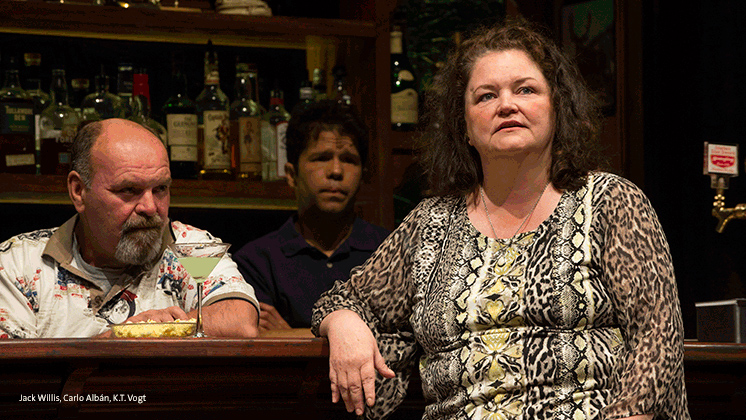Sweat
Ashland, Oregon at the Oregon Shakespeare Festival Sweat by Lynn Nottage | World Premiere Jack Willis, Carlo Alban, and K.T. Vogt in "Sweat".photo by the Oregon Shakespeare Festival Sweat is Lynn Nottage's brilliant story of people and community in collapse. Before writing this commissioned American Revolutions series play, Nottage talked to residents of America's poorest city of 2001, Reading, Pennsylvania. Her work shares the residents' pain, losses, and self-immolation as their good jobs are eliminated in relentless, financially logical, corporate-mandated factory closings and union busting. I knew the story's outline coming into the theater. I expected satisfying liberal ranting and raving at the [...]

